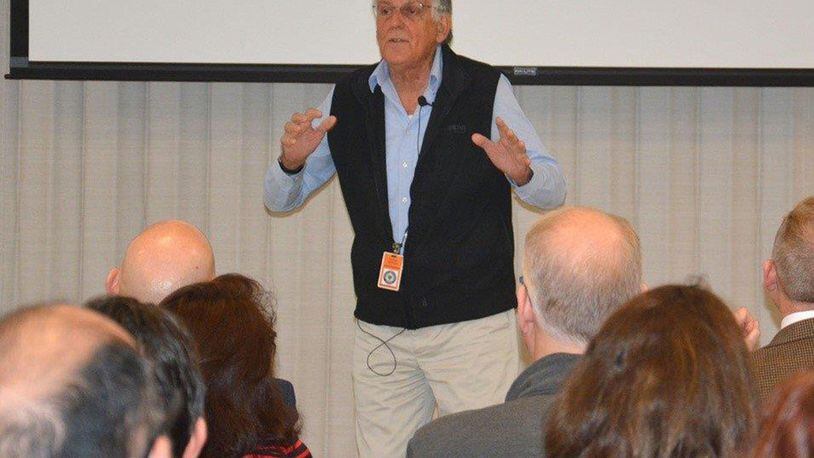According to the Royal Swedish Academy of Sciences, prior to his revolutionary discovery, “In all solid matter, atoms were believed to be packed inside crystals in symmetrical patterns that were repeated periodically over and over again … Shechtman’s image, however, showed that the atoms in his crystal were packed in a pattern that could not be repeated.”
In other words, his discovery changed the way chemists view solid matter.
Since the existence of a non-repeating crystal was deemed impossible, it was extremely controversial at the time. Shechtman’s observations were not accepted readily within the scientific community. In fact, some of the most prestigious scientists of his era completely rejected his findings. He encountered difficulty publishing his work and was even asked to leave his research group at one time.
Steadfastly confident in his discovery, Shechtman persisted, publishing his findings and spreading his knowledge to both his peers and a future generation of scientists and engineers. In 2011, his efforts were rewarded with the Nobel Prize.
AFRL Materials Researcher Dr. Allan Katz, who worked in the same group with Shechtman during his time in AFRL, said he contributed important knowledge in the transmission electron microscope characterization of titanium aluminide intermetallic materials.
As for Shechtman’s tenacity regarding his prize-wining discovery, Katz said, “His story of perseverance, belief in self and scientific integrity in the face of considerable skepticism is a life lesson that can be applied to more than just science and engineering.”
Shechtman’s journey into scientific immortality began when he was a young boy growing up in Israel.
“When I was 7 years old, my grandfather bought me a present, and that present changed my life,” Shechtman told the capacity crowd. “He bought me a magnifying glass.”
That gift, he said, sparked the curiosity that would shape his entire career.
“I fell in love with the world of small things,” he said, telling the audience that he would go from object to object, discovering the wonders of the world around him.
Through this story, Shechtman imparted to the crowd the importance of encouraging the curiosity of young people, something he considers crucial to the development of future scientists and engineers.
“If you see a child who is interested—measuring something—encourage him or her,” he said.
Shechtman went on to grow his own early interests into something much larger, becoming an expert in electron microscopy while in graduate school. He said he became knowledgeable of the tool when his college purchased one for the laboratory. He took it upon himself to watch the technician assemble it piece by piece and become intimately familiar with how it was built. Electron microscopy would eventually become critical to nearly all his published research.
“It is one of the most powerful tools available to scientists,” he said.
When asked about his groundbreaking discovery of quasicrystals, Shechtman described the difficult road to acceptance within the scientific community. Initial reactions from his peers ranged from encouragement to rejection. Undaunted, he fought to get his papers published. Once his discovery was in print, young avant-garde scientists around the world took the discovery and turned it into a fast-growing science.
Shechtman’s hard-fought battles provided him with a wealth of knowledge he has shared with many up-and-coming scientists and engineers during the course of his career. To the AFRL crowd, he offered a few of these words of wisdom, beginning with the importance of persistence: “You have to have enough confidence in your science when people object.” He went on to advise, “Be like a Rottweiler dog; don’t let go if you find something extraordinary.”
He also encouraged researchers to nurture their own curiosity by seeking a broad knowledge of science while acquiring expertise in a particular area of interest. Although no one person can know everything, he said, a basic knowledge in a wide range of subjects will serve researchers well in their careers. To preserve new knowledge, he emphasized the importance of keeping good records of every experiment and every calculation.
In parting, Shechtman extoled the virtues of discovery, communication and innovation.
“Scientists should have freedom to run wild,” he said.
About the Author
